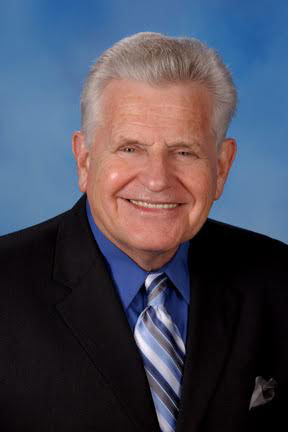Meeting Planners Struggle to Control Costs | By David M. Brudney, ISHC
Meeting planners are faced with the same economic challenges confronting hotels today - - booking “effective” events at the least possible costs - - and as a result are “flexing” their negotiating leverage and aggressively seeking room rate concessions, according to a recent meeting planner survey conducted by PKF Hospitality Research and Conventions South Magazine.
The Top Five criteria for selecting a meeting site were room prices, available meeting space, willingness to negotiate, service standards, and the price of meeting space. Interestingly, “green certified venues” finished next to last in order of importance. Planners indicated that the biggest cuts were in banquet menus and off-site events. The survey was conducted this fall with 100 planners participating. Topics included: quantity of meetings projected for 2010, attendance, technology, budgets, and destination and facility selection.
Some good news on future bookings and attendance: Randy Smith uses the term “less bad is the new good” when presenting Smith Travel Research’s hotel industry projections for 2010. That would appear to be the case with meeting planner projections regarding the number of future events and the overall attendance on events to be booked next year. Only one out of four planned fewer meetings and exhibits in 2009. Most expect no change in 2010.
Attendance at meetings and exhibits “surpassed” expectations in ’09, a clear sign that ’09 expectations were understandably low. Slightly more than half of the planners surveyed indicated the economy had affected their venue and destination selection. Heavily discounted room rates and other meeting costs at first tier cities have contributed to planners not opting to book secondary and tertiary cities.
So, what does all this mean to hotels and hotel sales professionals?
- Be prepared to negotiate big time because planners will be primed to do so as well
- Make sure you don’t “give away the store”
- Think “added value” and “bundling” of attractive options such as breakfast, $25 - $50 credits for F&B and merchandise, early check-in, guest room upgrades, stocked fridge, free Internet/Wi-Fi
- Make concessions based on your getting something in return, for example:
- Greater share of all of the client’s total hotel-related business
- Client commits to booking smaller meetings with guest rooms booked throughout 2010 and 2011
- Tiered pricing, e.g., higher priced rooms/suites for CEOs, COOs, CFOs, lower priced rooms for the qualifiers, attendees, suppliers, and staff
- Make certain that your function space has been cleared so client can book the rooms best qualified to fit clients’ program content and goals
My colleague Bruce Goodwin, President of Goodwin & Associates Hospitality Consulting, Inc., San Diego, CA, reports that meeting and event planners and decision makers are now demanding double and triple guest-loyalty reward points in negotiations with various hotels and resorts. Goodwin, whose consulting practice keeps him busy in Mexico, Central and South America, points out that these planner demands are not subject to any accountability or taxation and that in most parts of the world they would be regarded as bribes.
How the branded properties respond to these new demands during negotiations has to be of great interest to independent hotels and resorts, most of which would be at considerable disadvantage having no comparable loyalty programs with which to compete. I will be addressing more on this issue in my January article.
Hotel News Now’s Associate News Editor Patrick Mayock’s recent column (“In tough times, maintain or bolster your sales staff”), reminded me of some of the feedback I received from an article I wrote earlier this year on why now is not the time to cut back on sales and marketing budgets.
I commented back in February that never in all of my 45 years in the business have I seen so much anxiety among hoteliers, owners, and asset managers. Not without cause, hotels across the nation have taken draconian steps to deal with the current economic crisis including layoffs, reduced hours, department consolidation, hiring, management salary and bonus freezes, 401K contribution reductions, closing underperforming F&B outlets, and suspension or elimination of existing services and amenities.
Unfortunately, sales and marketing operations and budgets are feeling the knife as well. Significantly curtailed are marketing activities touching every element including electronic and print advertising, P.R., travel and trade shows, Fam-trips, and even outside personal sales calls.
Hotel sales and marketing should be the very last area for cuts and downsizing. Operators that choose to do so risk facing even greater challenges when the market turns - - and we all know that day will come. Those operators that adopt a policy of “hunker down” and “we’re going to sit this one out” may be very disappointed after the economic recovery to find how badly their property has slipped.
A regional sales manager responded to my piece: “As I am sitting here tonight about to go into a meeting tomorrow where I will likely hear how sales will be cut, your article could not have been more timely. When will the industry learn?”
An assistant G.M. – Rooms wrote: “I just read your article and I strongly believe that now is the time to increase your presence in the market.”
A prominent executive recruiter wrote: “David, right on regarding your article and comments. I’ve been saying that same thing for many years - - hotels over- react to market conditions by cutting ‘sales’. That is just plain crazy. If anything, (we should) add to the sales effort. This is no time for hotels to cut back in sales and marketing, but far too many hotels do just that. Crazy! I’m receiving a dozen resumes daily from recently laid off sales and marketing managers. Who makes the decisions to cut back any revenue generating position and sales? Let those guys (the ones that make those decisions) go first!”
And here is what a very successful, retired professional salesman wrote: “David, very up to date. During recessions businesses have typically cut back on the traditional things and kept on their same business model. I have always felt that was wrong. I think the right thing is to examine every aspect of the business process and begin anew. Sometimes it is called zero based budgeting. It is also called thinking outside the box. It is a perfect time for personnel evaluation and new training. Find the right people that can take you to the next level and train them in the process.”

David M. Brudney, ISHC, Principal
Phone: 760-476-0830
Email: davidbrudney@me.com
David Brudney & Associates
www.DavidBrudney.com
2938A Luciernaga Street
USA - Carlsbad, CA 92009
Phone: 760-994-9266
Email: david@davidbrudney.com
OBITUARY: Death of THE Salesman
Remembering Peter A. Smith | By David Brudney
Are Hotels Coveting only Half of the Millennial Market? Part Two | By David M. Brudney
